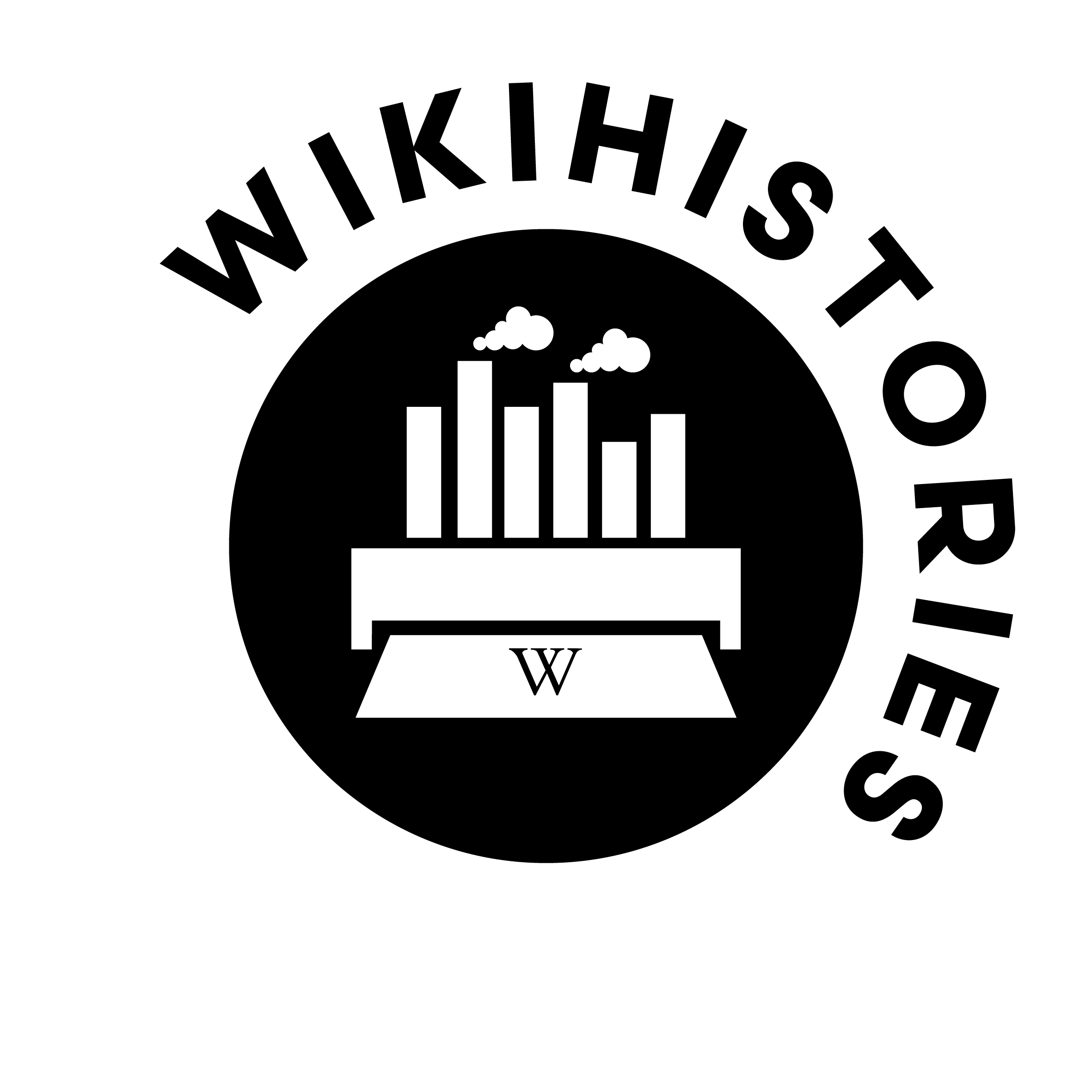Where and when
wikihistories 2023 took place on the 8th and 9th of June. It brought together nearly 100 scholars and Wikipedians from around the world, to discuss the way histories and memories are made an unmade in the world’s largest knowledge platform.
Watch all the talks at the official YouTube playlist. See the programme below to find the video and abstract of a specific talk.
Keep the conversation going. Join the wikihistories mailing list. Contact us for an invitation to our Slack community.

Programme
Call for papers
From its earliest beginnings shortly before 911,[1] Wikipedia has documented history as it happens. Revolutions,[2] terrorist attacks,[3] earthquakes,[4] fires and floods have been written about on the platform, often within minutes of the first recorded protests, attacks, and blazes. This practice of documentation, conducted by volunteers who are connected by shared interest rather than shared expertise, falls between the disciplines of digital journalism and history. What does Wikipedia’s coverage of events “that haven’t even stopped happening yet”[5] mean for history-making on the platform? Researchers have noted that recent events are covered more than early history[6], and stories are more often presented from colonialist rather than local perspectives.[7] More recently, Wikipedia has been uncovered as a site of both conscious forgetting and the “frenzy of commemorations,”[8] a venue for nationalist propaganda projecting particular stories that favour particular ideologies and social groups.
- How does Wikipedia construct history and collective memory?
- Does Wikipedia enable the forging of a collective memory via consensus?[9]
- How are some versions of the past pushed to the fringes?
- What gets remembered and what gets forgotten?
- How can we study history-making on the platform?
In this first annual symposium of the wikihistories project, we will take stock of what we know and what we still need to know about Wikipedia as a history-making platform. We do this because Wikipedia’s representation of history matters. Its facts travel through knowledge ecosystems and rest as answers to questions provided by digital assistants, search engines and other AI-enhanced tools. Wikipedia’s claims to neutrality are more a hope than a promise, a guise that hides the dreams and ideologies of the individuals and groups that understand its power and are determined to master its form.
We invite Wikipedia scholars and researchers to participate in a two-day symposium being held online on the 8th and 9th of June. Please send an abstract of 250-300 words to michael.falk@uts.edu.au before March 17 (close of day anywhere in the world) responding to any of the above questions. We expect a mixture of both analytical and methodological contributions for the event which will be held annually for the 3 years of the wikihistories project.
Keynote Speakers
This year’s symposium will feature keynotes by Dr Shira Klein and Dr Simon Sleight.
Dr Shira Klein is an Associate Professor of History at Chapman University. Her recent article on “Wikipedia’s Intentional Distortion of the History of the Holocaust” has garnered tens of thousands of views since its publication in February, has received media coverage in English, Polish, Hebrew, German, and Spanish, and has triggered a rare self-initiated action of English Wikipedia’s Arbitration Committee.
Dr Simon Sleight is a Reader in Urban History, Historical Youth Cultures and Australian History at King’s College, London. Dr Sleight is the co-editor of History, Memory and Public Life: The Past in the Present (Routledge, 2018) and will provide a rich background to our investigations of collective memory from the history discipline for an interdisciplinary audience.
[1] Brian Keegan, “An Encyclopedia with Breaking News,” in Wikipedia@ 20: Stories of an Incomplete Revolution, ed. Joseph Reagle and Jackie Koerner (Cambridge, Mass: MIT Press, 2019), 55–70, https://doi.org/10.7551/mitpress/12366.003.0007.
[2] Heather Ford, Writing the Revolution: Wikipedia and the Survival of Facts in the Digital Age (Cambridge, Massachusetts: The MIT Press, 2022). https://doi.org/10.7551/mitpress/11386.001.0001
[3] Bunty Avieson, “Breaking News on Wikipedia: Collaborating, Collating and Competing,” First Monday, April 30, 2019, https://doi.org/10.5210/fm.v24i5.9530; Christian Pentzold, “Fixing the Floating Gap: The Online Encyclopaedia Wikipedia as a Global Memory Place,” Memory Studies 2, no. 2 (May 2009): 255–72, https://doi.org/10.1177/1750698008102055.
[4] Brian Keegan, Darren Gergle, and Noshir Contractor, “Hot off the Wiki: Dynamics, Practices, and Structures in Wikipedia’s Coverage of the Tōhoku Catastrophes,” in Proceedings of the 7th International Symposium on Wikis and Open Collaboration (WikiSym ’11: The 7th International Symposium on Wikis and Open Collaboration, Mountain View California: ACM, 2011), 105–13, https://doi.org/10.1145/2038558.2038577.
[5] “All the News That’s Fit to Print Out,” New York Times (Online) (New York: New York Times Company, July 1, 2007), 2223136739, ProQuest Central, https://www.proquest.com/blogs-podcasts-websites/all-news-that-s-fit-print-out/docview/2223136739.
[6] Graham, Mark, Scott Hale, and Monica Stephens. “Geographies of the World’s Knowledge.” (2011).
[7] Brendan Luyt, “The Nature of Historical Representation on Wikipedia: Dominant or Alterative Historiography?,” Journal of the American Society for Information Science and Technology 62, no. 6 (2011): 1058–65, https://doi.org/10.1002/asi.21531; Bunty Avieson, “Two Wikipedias in Bhutan: Problems and Solutions for Knowledge Equity in the Digital Age,” Asian Journal of Communication 32, no. 5 (September 3, 2022): 399–416, https://doi.org/10.1080/01292986.2021.1937248.
[8] Paul Ricoeur, Memory, History, Forgetting, trans. Kathleen Blamey and David Pellauer (Chicago: University of Chicago Press, 2004), 85.
[9] Brendan Luyt, “Wikipedia, Collective Memory, and the Vietnam War,” Journal of the Association for Information Science and Technology 67, no. 8 (2016): 1956–61, https://doi.org/10.1002/asi.23518; Pentzold, “Fixing the Floating Gap”; Marlon Twyman, Brian C. Keegan, and Aaron Shaw, “Black Lives Matter in Wikipedia: Collaboration and Collective Memory around Online Social Movements,” in Proceedings of the 2017 ACM Conference on Computer Supported Cooperative Work and Social Computing, 2017, 1400–1412, https://doi.org/10.1145/2998181.2998232.
Image: Wikipedia (manuscript) (public domain)
